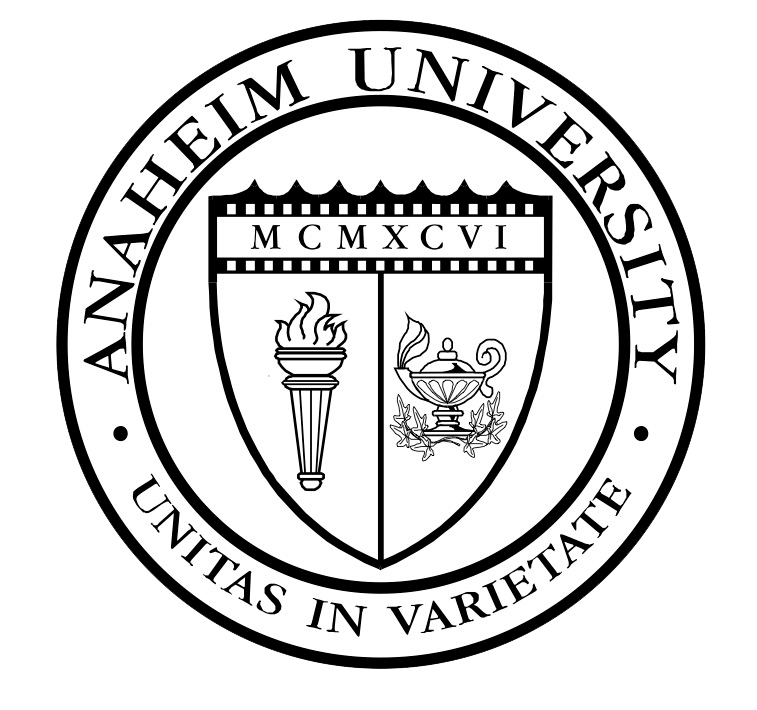MBA in Global Sustainable Management
June 5, 2023 2025-01-27 1:55MBA in Global Sustainable Management
Online MBA in Global Sustainable Management
Champion sustainability with Anaheim University’s online Graduate Sustainable Management Diploma. This program offers practical training for environmentally conscious business practices. Enroll now to equip yourself with skills that drive positive change in organizations and society.
- 6 core courses in Business Administration
- 4 "Green" courses in Sustainable Management (including a "Green" Capstone Course in Sustainable Management)
- 2 elective courses in International Business and Entrepreneurship
- Interact with your professor and social entrepreneurs around the globe
- Complete the Online Green MBA from anywhere in the world while working full-time
- 18-month intensive Online MBA program: New courses begin every 6 weeks
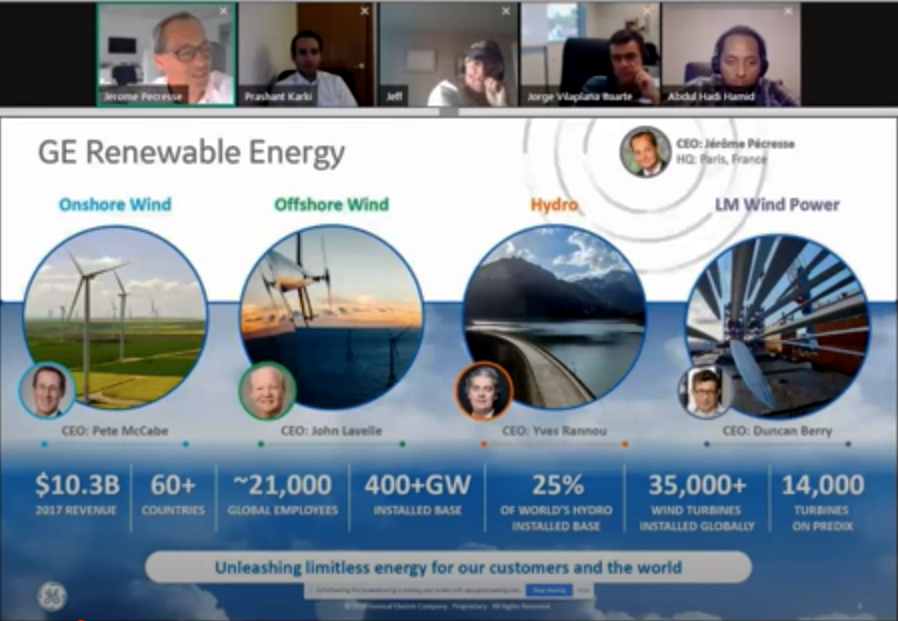

Kwok Shum, Ph.D.
Associate Dean, Akio Morita School of Business
Director, Kisho Kurokawa Green Institute
Professor
After earning a Stanford University Master of Science in Engineering degree, Dr. Kwok Shum received his Ph.D. in Management of Technology from the Tokyo Institute of Technology. Dr. Shum’s research and teaching interests lie in new technologies, renewable energy industry and deployment, the

Carlos Aquino, Ph.D.
Professor
Holding a George Washington University MS in Structural Engineering and a University of Sao Paolo Ph.D. in Sciences and Technology, Dr. Carlos Tasso Eira De Aquino is an accomplished senior executive and educator combining over 25 years of experience in leadership and scholarship in Business, Education, IT, and Engineering. In his executive career, he has been strategically

Vince Carter, Ph.D.
Professor
Dr. E. Vince Carter is a Professor at the Anaheim University Akio Morita School of Business and Kisho Kurokawa Green Institute. Vince’s teaching approach develops learning blueprints to align structured Green Marketing skills with creative knowledge discovery. This dialectical dynamic embraces the spirit of Kisho Kurokawa’s design philosophy of symbiosis for The Age of Life. Dr. Carter

Robert Diotalevi, J.D.
Professor
Dr. Robert Diotalevi, Esq., LL.M., is serving in his 17th year as Associate Professor of Legal Studies at Florida Gulf Coast University in Fort Myers, Florida. He was the founding Legal Studies Program coordinator. He has been a lawyer for 33 years as a member of the Massachusetts and Florida bars. He possesses 4 degrees and has

Mariah Jeffery, Ph.D., CSCP
Professor
Dr. Mariah Jeffery holds a Ph.D. in Operations Research and a Master of Science in Industrial Engineering from the University of Central Florida, and is an APICS Certified Supply Chain Practitioner. She has extensive industry experience, consulting on supply chain management and data analytics for Fortune 500 clients, including IBM, Coca-Cola, General Motors, and the United States

Tamara Myatt, Ph.D.
Professor
Holding a Ph.D. and Masters in Human and Organizational Systems from Fielding Graduate University, Tamara Myatt has spent more than a decade transforming the professional and educational lives of young and disadvantaged people in some of the poorest and most dangerous regions of the world, championing the causes of women, and orchestrating locally and globally scaled initiatives

Chris Raymond, Ph.D.
Professor
Dr. Christopher Raymond earned a Ph.D. in economics from the University of California, Santa Barbara, and later completed an international MBA from École National des Ponts et Chaussées in Paris, France. After earning his MBA, Dr. Raymond became an economics lecturer in the Management School at Imperial College, London. While there, he also served as Deputy Director

Stavros Sindakis, Ph.D.
Professor
With both a Ph.D. and MBA in Strategy, Enterprise & Innovation from the University of Portsmouth, Dr. Stavros Sindakis has made significant contributions to these fields through his research and publications on entrepreneurship and business innovation including his books Entrepreneurial Rise in Southeast Asia, and Analytics, Innovation and Excellence-Driven Enterprise Sustainability, with his third in progress. Dr.
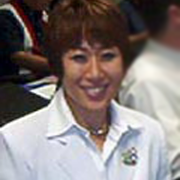
Barbara Son, Ph.D.
Professor
Holding a Ph.D. in Urban Business Economics from Portland State University, and a Masters in Urban Affairs with a concentration in Technology, Business, Economics, and Public Administration from Boston University, Dr. Barbara Son is well-experienced in the field of online education and has taught global management at Boeing in Long Beach, DBA at University of Sarasota/Argosy University,

John Wang, Ph.D.
Professor
Dr. John Wang received a scholarship award to complete his Ph.D. in Business Administration at Temple University in 1990, after earning his M.S. in Systems Engineering from Harbin Institute of Technology. In addition to serving as a professor in the Anaheim University Akio Morita School of Business, Dr. John Wang is a professor in the Department of
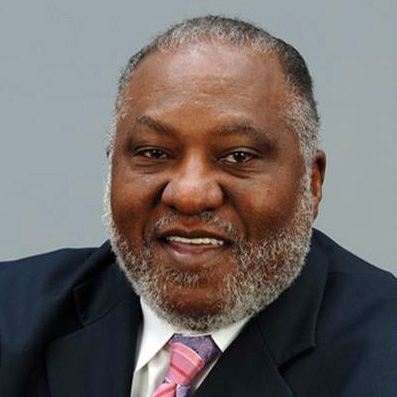
Andrew E. Honeycutt, DBA
President, Anaheim University
Professor
Dr. Andrew E. Honeycutt, President of Anaheim University, is the recipient of a Harvard University Doctor of Business Administration (DBA) degree in Marketing and a Boston University Master of Business Administration (MBA) degree in Organizational Behavior. Dr. Honeycutt has served as Dean of the School of Business and Management and Director of the
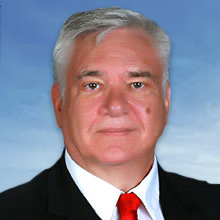
Robert Robertson, Ph.D.
Dean, Akio Morita School of Business
Dr. Robert Robertson holds a Ph.D. in Management and Organization (Stirling University, Scotland); Massachusetts Institute of Technology (MIT) Sloan School of Management Executive Certificate in Innovation and Strategy, Post-Doctoral Professional Certificate, International Business and Leadership (Argosy University); Post Graduate Diploma in International Management-China (University of London); Master of Studies in Law (Vermont
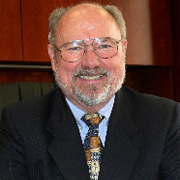
William Hartley Ph.D.
President Emeritus
Professor
Dr. Hartley’s background is a combination of education, private sector work, teaching and consulting. Holding a bachelor’s degree, three master’s degrees, and a Ph.D. from the University of Colorado, University of California at Berkeley and University of Wisconsin respectively, Dr. Hartley has had a variety of jobs from administrative manager of the R&D division
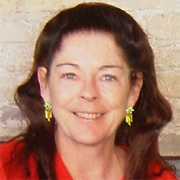
Caryn Callahan, Ph.D.
Senior Professor Emeritus
Holding a Harvard University Ph.D. in East Asian Languages in Civilizations with a specialization in Japan and an MBA specializing in Finance-Accounting from the University of California Los Angeles (UCLA), Dr. Caryn Callahan is a former Vice President and International Equity Analyst for Merrill Lynch Japan as well as Financial Analyst for W.R. Grace
Overview
People, Planet & Prosperity
- Learn the fundamentals of Business Administration through 6 core courses in:
- International Marketing
- International Management
- International Human Resource Management
- International Accounting
- International Finance
- International Economics
- Complete 3 of 4 specialized courses in Sustainable Management, plus the required Sustainable Management Capstone Course at the end of the program:
- Sustainable Enterprise Development and Leadership
- Triple Bottom Line Accountability and Management
- Green Marketing and Environmental Product Design/Recycling
- Corporate Social Responsibility and Ethics
- Sustainable Management Capstone Course
- Choose 1 elective course in International Business:
- Seminar in International Business
- International Business Law
- Intercultural Communications
- Supply Chain Management
- Choose 1 elective course in Entrepreneurship:
- Entrepreneurial Forecasting and Planning
- Entrepreneurial Innovation
- Entrepreneurial Strategy
- Intellectual Property
- The final course of the MBA in Global Sustainable Management program is the Sustainable Management capstone, which serves as the culmination of the program. For this capstone requirement, students learn how to develop a management plan for sustainability; evaluate how to find appropriate ways to impact systems; and perform analysis of systems and create a vision for the future.
How the Program Works:
Course Schedule & Evaluation Structure
Online Discussion Forum
Team Project
Week 1
Week 2
Live Webinar
Week 3
Week 4
Week 5
Live Webinar
Week 6
Final Project
- During each 6-week term you will be evaluated on your participation in the daily online discussion forum, two 90 minute live online webcam seminars, an Internet Research Assignment, a team project, and a final individual project. Four courses will also include a proctored exam.
- Through the Online Discussion Forum, discuss questions regarding your readings with your professor and fellow students around the world
- At the end of the 2nd and 5th weeks, join the two 90-minute live online webcam seminars
- Develop valuable teamwork skills through a collaborative team project
- Discussion questions and assignments can be tailored to your personal project or work situation
- What you learn today can be used in your job tomorrow
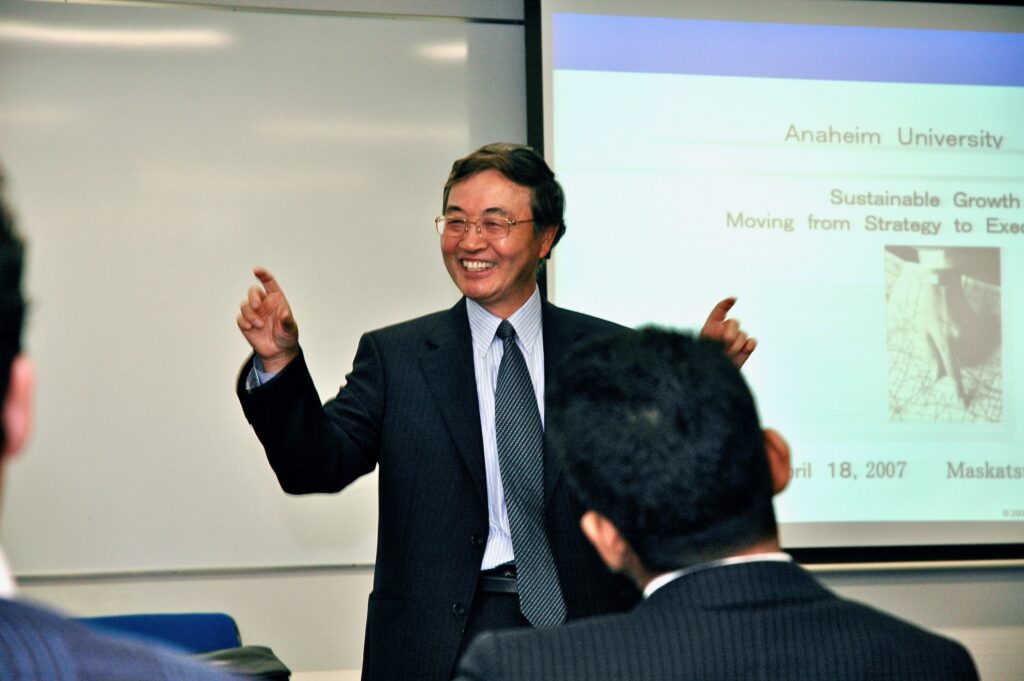
Program Objectives
The MBA in Global Sustainable Management trains its students in communication skills, the use of technology as a tool of effective management, ethics, analytical skills and the functional fields of business, leadership, teamwork and supervision, and the so-called “three Ps” of people, profit and planet. This Green MBA program prepares graduates to be global business leaders who will contribute to the development of sound economic and public policy in a globally competitive world. Upon successful completion of the MBA in Global Sustainable Management program, students will be able to:- Discuss current conceptual and theoretical models, issues, and concerns in international business administration;
- Describe current practices, issues, and concerns in international business administration;
- Shift their thinking from managing the internal aspects and direct linkages of the corporation to assuming broader responsibilities for the entire enterprise which includes the practices of suppliers and their suppliers, customers and their customers, stakeholders, and those who dispose of or recycle/refurbish a product at the end of its useful life;
- Articulate the vision of the triple bottom line to business stakeholders and conduct triple bottom line audits and reorganizations;
- Systematically investigate sustainable marketing issues in the context of environmental impact in both a domestic and an international context;?
- Develop a shift in paradigm of business thinking as a means of establishing sustainable marketing strategies;
- Outline an approach to sustainability for small companies and for governmental and nongovernmental organizations;
- Evaluate business issues within the context of ethics and social sustainability, and specify the kinds of laws, regulations and professional rules that bear on ethical decision-making;
- Describe the purpose and benefits of strategic planning in order to keep a corporation on its path to sustainability
Curriculum
“The experience and point of views shared by other students was a highlight, as was the majority of our lecturers, the content was amazing – but the best thing was the program design. It allowed for deep digestion of the content, enabled critical thinking to flourish (rather than rote regurgitation), and thankfully allowed the freedom to relate the material to real world problems and interests that were close to my heart.” – The Duke of Edinburgh Victoria Executive Officer Stephen Mason
Kisho Kurokawa Green Institute
The AU Online MBA in Global Sustainable Management (Green MBA) is comprised of 12 intensive 6-week courses. Complete 6 core courses, 4 specialized sustainable management courses (including the required Sustainable Management Capstone Course at the end of your program), 1 elective international business course and 1 elective entrepreneurship course. The program can be completed in 18 months from anywhere in the world.
Core Courses | ||
Specialized Courses (choose 3 of 4, plus the required Sustainable Management Capstone course) | ||
Elective Course (Choose 1 International Business course) | ||
Elective Course (Choose 1 Entrepreneurship course) | ||
TOTAL UNITS | 36 units |
Course Descriptions
Akio Morita School of Business Courses
BUS 510 International Economics (3 units)
Economics is an important subject that affects the way we live in not only the United States but internationally for countries who use the market system to determine the allocation of resources in their society. The aim of this course is to help students understand the operation of a market system in an international setting and to explore the nature and organization of various societies and the arguments underlying many of the great global public issues of the day in an international setting, and to understand the operation and behavior of international business firms and other decision-making entities through the study of the principles of international economics useful to students in the international MBA program.
BUS 520 International Human Resource Management (3 units)
Human beings are the most crucial components of any organization as all other company assets are always subject to human decisions. Recruitment, management and training of the workforce are then crucial tasks that contribute to the company’s success and can even be decisive for its survival. This is true whether we are considering domestic companies or international companies. This course focuses on the study of human management principles as they reflect on the basic assumption of treating employees as investments benefiting a company in the long run from the international perspective. The class is designed as an overview of traditional functions of international human resource (IHRM) management and an examination of its governing mechanisms contributing to the success of an organization. Compensation, staffing, training, labor relations and employee performance evaluation are studied from an international perspective among other aspects of international human resource management.
BUS 530 International Accounting (3 units)
In our increasingly globalized world, accounting students need to understand the main features of financial reporting practices as they differ in different countries so that they will be able to distinguish accounting and reporting differences that would otherwise give rise to problems for report readers. It is also vitally necessary to understand the ongoing efforts to harmonize standards using International Financial Reporting Standards (IFRS). The course aims to give participants a thorough grounding in the key principles of accounting while enabling them to understand the major features of the international IFRS standards. The course shows the links between accounting statements, valuation methods and investment analysis. The course also reviews important technical areas of differences among accounting systems such as inventory valuation, the use of reserves, consolidations, and taxation of income. The student will be able learn to identify problems in international harmonization while appreciating the capital market efficiencies to be gained from harmonization of international accounting standards.
BUS 540 International Marketing (3 units)
International Marketing frequently requires major changes in how organizations conduct business in a global marketplace. It is a necessity for today’s business leader to be aware of the implications of marketing strategies and how they are employed in different countries with different cultures. This course focuses on identifying and meeting the needs of specific international target markets through close interaction with managers from other functional areas, such as promotion, finance, accounting and human resources.
BUS 550 International Management (3 units)
We are observing a fundamental shift in the nature of geopolitics. No longer will global business leaders focus on one or two stock markets, currencies, economics or political leaders. Today’s business environment is far too complex and interrelated for that. Nation states and multinational corporations will remain both powerful and important. Global networks comprising technological, entrepreneurial, social and environmental interest groups will remain powerful. Future economic and business endeavors will increasingly be characterized by a search for common ground, productive partnerships, and mutual benefit. This course will focus on developing a deeper understanding of how and why management practices and processes can differ around the world, and the development of the skills necessary to function successfully in this international business environment.
BUS 560 International Finance (3 units)
This course covers material essential to a comprehensive understanding of international financial management. Topics will include, but not be limited to, foreign exchange markets, the global cost of capital, corporate strategy and foreign investment and multinational capital budgeting.
BUS 542 International Finance (3 units)
This course provides a comprehensive coverage of the legal, cultural, political, economic and ethical issues faced by global business managers. An understanding of these issues is enhanced through the use of real-world examples, cutting edge cases, managerial problems, and ethical issues.
BUS 570 Intercultural Communications (3 units)
Intercultural communication is international communication across national boundaries involving many different cultures. There is a wide range of communication problems that naturally appear when one moves across national boundaries, and within organizations which are made up of individuals from different countries representing different religious, social, ethnic, and educational backgrounds. Intercultural communication seeks to understand how people from different countries and cultures behave, communicate and perceive the world around them quite differently. From a management perspective, it studies situations where people from different cultures interact in a business environment. The purpose of this course is to gain an understanding of the variations in language, customs, social attributes, thought patterns, and other aspects of cultures of different groups of people. An understanding of intercultural communication is essential for the conduct of international businesses. It is the purpose of this course to provide this understanding.
BUS 572 Seminar in International Business (3 units)
Successful managers in a world of global competition must have an array of skills, talents and abilities at their disposal. This course uses extensive examples to illustrate the vibrancy and challenge of international business. Coverage of relevant topics includes the degree of geographical literacy necessary to succeed in international markets, which is frequently overlooked in more traditional courses.
BUS 575 Supply Chain Management (3 units)
Supply Chain Management involves the flows of materials and information among all of the firms that contribute value to a product, from the source of raw materials to end customer. The goal of this course will be to help students understand the strategic importance of good supply chain design, planning, and operations for every firm, to provide students with the use of key drivers on a conceptual and practical level to improve supply chain performance, and to give students a solid understanding of analytic methodologies for supply chain analysis necessary to achieve significant increase in performance
Kisho Kurokawa green institute courses
BUS 535 Triple Bottom Line Accountability & Management (3 units)
The Triple Bottom Line Accounting and Management course is an expanded version of accounting for corporate activity. Contemporary society has moved away from the mere financial bottom line to a higher level of social responsibility where we account for the true social impact of our business activity. Through this expanded version of accounting and accountability, social and environmental impact is added to the equations. Thereby the report of corporate activity and management comprehensively reflects a true bottom line. The three prongs of the true bottom line become clear: economic prosperity, environmental quality and social justice. This course provides the basis for business students to go forward and determine the true social effects of the businesses they are working for and to manage for the future.
BUS 535 Green Marketing & Environmental Product Design/Recycling (3 units)
Green Marketing & Environmental Product Design/Recycling is a course structured around the traditional “4Ps” of marketing and explains how marketing mix decisions can and do influence environmental outcomes. Throughout the course, the emphasis will be on the conversion of consumption systems to a sustainable paradigm that represents a circular use of resources, not the linear approach (materials >products >consumption >disposal) that leads to the pollution of ecosystems. The major theme of the course is that marketers can reinvent strategy and craft “win-win-win” solutions, where customers win (obtaining genuine benefits), organizations win (achieving financial objectives), and ecosystems win (ecosystem functioning is preserved or enhanced).
BUS 555 Corporate Social Responsibility (CSR) & Ethics (3 units)
Corporate Social Responsibility and Ethics is a comprehensive study of the core issues for business in the questions of sustainability, social responsibility and ethics. The course introduces the student, not only to relevant issues, but the views of corporate stakeholders. Approaches for presenting and carrying out a program of sustainability are presented, including strategic planning, targets, goals and alternative approaches. A principal part of the course is devoted to the ethics of business and issues of transparency, including discussion of the social impact of nonethical and non-transparent business practices. Case studies, a team project and practice assignments assist in presenting these themes on a practical level. The course concludes with information and discussion on trends in sustainability and business ethics. A principal goal of the course is to show that community engagement and the maximization of profit/ shareholder value are not mutually exclusive, but mutually reinforcing.
BUS 565 Sustainable Enterprise Development & Leadership (3 units)
Sustainable Enterprise Development and Leadership is a course which provides a comprehensive and practical analysis of what sustainable business development is and how companies can use it to make a significant difference. Sustainable development involves articulating, integrating and achieving social, economic, and environmental objectives, and initiatives to protect humankind and the natural world from destructive behaviors. Sustainable business development is a holistic management approach which includes the entire value-added system from the origins of raw materials, to production processes, to customer use, to product end of useful life. Sustainable outcomes are those that balance the performance objectives of the present with the needs and expectations of the future. To achieve these outcomes, there must be a profound change in strategic thinking, leadership and the management of businesses.
BUS 615 Sustainable Management Capstone Course (3 units)
This final, summative experience is the cumulation of the MBA in Sustainable Management and a capstone to the educational program. Students will develop a sustainable management plan for a company, using original market and industry research. This management plan will be comprehensive and cover all aspects of sustainability, including resources, case statements, financing strategies, potential partners, and a final action plan. Upon completion, students will be able to understand how to develop a management plan for sustainability; evaluate how to find appropriate ways to impact systems; and perform analysis of systems and create a vision for the future.
Carland Entrepreneurship Institute Courses
ENT 500 Entrepreneurial Innovation (3 units)
This course is imperative to successful entrepreneurial ventures. The ability to differentiate oneself from the competition is paramount. Each of us has the gifts for innovation, but we are often loath to use them as risk always accompanies innovation. Some are more comfortable with risk than others, thus understanding the personality of entrepreneurs enables us to use the gifts of others to our advantage. Unfortunately, the emphasis on “right answers” and “minimizing risk” causes many of us to react cautiously in the workplace where compensation and rewards are applied for convergence rather than divergence, no matter the outcome. This course helps us to find out about ourselves, helps us to understand how others think and react, helps us to practice creative exercises which can open our minds to new possibilities, helps us to understand why some companies are more innovative than others and discusses what might be accomplished in the creative environment
ENT 540 Entrepreneurial Forecasting (3 units)
The objective of this course is inculcate in students an understanding of the forecasting and budgeting process and for students to learn how to prepare sales forecasts for new and for existing ventures, to prepare variable and fixed cost budgets to support the sales forecast, and how to document and support the resulting forecasts, and how to prepare cash flow forecasts and determine startup costs for a new venture. Students will develop higherlevel critical thinking skills, evidenced by analysis, evaluation, and synthesis
ENT 560 Intellectual Property(3 units)
The objective of this course is to inculcate in students an understanding of the value of intellectual property to an entrepreneurial venture and for students to learn how to create, protect, and preserve intellectual capital. Students will develop higher-level critical thinking skills, evidenced by analysis, evaluation, and synthesis.
ENT 580 Entrepreneurial Strategy (3 units)
The objective of this course is to inculcate in students the strategic skills which are required to support the ongoing development of strategy and distinctive competencies, the vision required to support effective environmental scanning, and the knowledge required to plan for harvesting/succession and to design and create innovative and effective entrepreneurial compensation plans. Students will develop higher-level critical thinking skills, evidenced by analysis, evaluation, and synthesis.
Curriculum
MBA in Sustainable Management Course Schedule 2025
Live online webcam seminars are 120 minutes; the first hour is led by an expert speaker and the final hour is for professor-led discussion.
All times are California/Pacific Time. Please note the schedule is subject to change.
Graduate Certificate students choose any 3 out of the 4 Sustainable Management courses.
Term | Term Dates | Courses Offered | Live Online Webcam Seminar Dates |
1 | January 2, 2025 – | BUS 575 Supply Chain Management | TBA |
2 | February 10, 2025 – | BUS 615 Capstone | TBA |
3 | March 24, 2025 – | BUS 510 International Economics | TBA |
4 | May 5, 2025 – | BUS 520 International Human Resource Management | TBA |
5 | June 16 – | BUS 530 International Accounting | TBA |
6 | Aug 4 – | BUS 540 International Marketing | TBA |
7 | September 15 – | BUS 550 International Management | TBA |
8 | October 27 – | BUS 560 International Finance | TBA |
All online class times are California/Pacific Time. Please note that California observes Daylight Savings Time each year from the second Sunday in March to the first Sunday in November.
Tuition & Fees
MBA in Global Sustainable Management Program Fees
Affordable Pay-As-You-Learn System: Pay for only one course at a time.
Application and Registration Fees
Application Fee | $ 75 |
Registration Fee | $100 |
STRF Fee* (non-refundable, CA residents only) | $0 |
Per Course Fees | $1,125/course taken |
Records Fee | $ 200 / term |
Per Course Fee Total: | $1,325 |
Additional Fees | $ 820 |
Research reserve fund | $1,500 |
Transfer Credit Fee | $ 75/course (Optional) |
Original Transcript | No cost |
Each Additional Transcript Copy | $ 25 |
End of Program Fees | $ 200 (Optional) |
Replacement Cover | $ 100 (Optional) |
Course Completion Letter | $ 35 (optional) |
Degree Program Total | $18,395* |
*The list of tuition fees does not include textbook fees. Textbooks average approximately $150 – $200 per course.
*Assumes completion in twelve terms.
Note: Anaheim University makes certain provisions in order to provide access to library resources and library services for all students enrolled directly through Anaheim University. However, students enrolled in Anaheim University’s online graduate degree programs are required to have an additional reserve fund to be used for the purchase of journals and research – materials that will aid them in their studies by providing information specific to their unique areas of interest and research – and to provide access to software and other resources that may help them in the completion of their studies. The research reserve fund is $1,500 for masters students to be used over the duration of their program. Students are not required to spend the entire research fund – only that amount necessary in order to carry out their research.
The above itemizes all of the fees and charges for which the student is responsible. The refund policy may be found in the Policies & Procedures section.
Student Tuition Recovery Fund (STRF): The Student Tuition Recovery Fund (STRF) is administered by the California BPPE and applies only to California residents. The STRF fee is currently zero ($0) per one thousand dollars ($1,000) of institutional charges The State of California established the Student Tuition Recovery Fund (STRF) to relieve or mitigate economic loss suffered by a student in an educational program at a qualifying institution, who is or was a California resident while enrolled or was enrolled in a residency program, if the student enrolled in the institution, prepaid tuition, and suffered an economic loss. Unless relieved of the obligation to do so, you must pay the state-imposed assessment for the STRF, or it must be paid on your behalf, if you are a student in an educational program, who is a California resident, or are enrolled in a residency program, and prepay all or part of your tuition. You are not eligible for protection from the STRF and you are not required to pay the STRF assessment, if you are not a California resident, or are not enrolled in a residency program.
Each course is US $1,125 for tuition excluding books, materials, and other costs listed above. Students must pay the required tuition fee prior to commencing their next course. The student is not required to pay this tuition fee until the student wishes to register for his or her next course.
Tuition may be paid on a course-by-course basis.
Students interested in inquiring about non-interest-bearing monthly payment plan options should e-mail registrar @ anaheim.edu
Students who pay all program fees at one time are eligible for a 10% discount on tuition.
Students may make payment by check, credit card (Visa, MasterCard, American Express, or Discover), money order, or bank transfer (the student is responsible for any transaction fees imposed by the institution).
Please e-mail registrar @ anaheim.edu for information on how to make payments.
An application for a Sustainable Management MBA must include the following:
- Application form
- Application fee ($75)
- One recent color photograph (digital is okay)
- A scan of a current, government-issued photo ID
- Current resume
Official undergraduate transcripts from an accredited institution recognized by the US Department of Education and/or CHEA, or by the government of the country in which the degree was awarded, in a sealed envelope from the awarding institution with an overall GPA of no less than 3.0 on a 4.0 scale, or equivalent from non-USA Institutions.
Note: If the university does not routinely issue transcripts in English, original language records must be submitted with official English translations. We will accept translations issued by the university or by the following professional translation services: Accredited Language Services; Berlitz; Liaison Linguistics; Josef Silny & Associates; American Evaluation & Translation Services (AETS); and Education Evaluators International. Translations must be exact and
Non-native English speakers must demonstrate college-level proficiency by providing original documentation in one of the following ways:
- Degree from an accredited institution where English is the primary language of instruction.
- Transcript from an accredited institution indicating completion of at least 30 semester hours of credit where the language of instruction was English (“B” average)
- Transcript from an accredited institution indicating a “B” or higher in an English composition class.
- A minimum TOEFL score of 530 PBT / 197 CBT/ 71 iBT.
- A minimum TOEIC score of 800.
- A minimum IELTS score of 6.5.
- A minimum PTE (Pearson Test of English Academic Score Report) of 50.
- A minimum BULATS Level 3 (60), accepted only for Cultura Inglesa in Brazil.
- A minimum grade of Level 3 on the ACT COMPASS’s English as a Second Language Placement Test.
- A minimum grade of Pre-1 on the Eiken English Proficiency Exam.
- A minimum B2 English proficiency level identified within the Common European Framework of Reference (CEFR) Standards and assessed through various ESOL examinations, including the University of Cambridge.
Once your application materials have been approved, you will need to submit an Enrollment Agreement and tuition payment to complete the enrollment process.
Internet Access: All students are required to have access to a computer equipped with Internet access capabilities.
Entrance Examination: There is no entrance examination required for admission to Anaheim University.
Transfer Credits: Anaheim University will accept up to two graduate semester classes or 6 units awarded by another institution toward a Masters in Entrepreneurship; International MBA, Diploma or Certificate; and Sustainable Management MBA, Diploma or Certificate at Anaheim University. The entering student will be required to clearly demonstrate the equivalency of a transfer course through relevant documents (syllabus, catalog, course outline) and justify its acceptance through petition. No course will be considered for transfer with a grade lower than a “B” or its equivalent. Petitions are directed to the specific Dean for the affected program. There is a fee of $75 per course of credit transferred, and the overall program cost will be adjusted to reflect credit for the approved class(es). All petitions for transfer credit must be submitted as part of the student’s initial application to the University. Credits awarded as part of another degree will not be accepted for transfer.
Prior Experiential Credit: Anaheim University will not extend experiential credit to any student.
We currently do not accept students who reside in Alabama, Arkansas, Alaska, American Samoa, Connecticut, Delaware, District of Columbia, Georgia, Guam, Indiana, Maryland, Massachusetts, Michigan, Minnesota, Montana, New Jersey, New Mexico, New York, North Carolina, North Dakota, N. Mariana Islands, Oklahoma, Oregon, Pennsylvania, Puerto Rico, Rhode Island, Utah, Virginia, Virgin Islands, Wisconsin, and Wyoming due to regulatory matters. For more information, please call our Vice President of Administrative Affairs at 714-772-3330
The steps below are general guidelines for joining a program at Anaheim University. Just complete the following steps and, if approved, become part of Anaheim University’s global community within 2 weeks.
Step 1:
Read thoroughly through the pages of our website and catalog
Step 2:
- Click here to submit your application online
- Click here to fill out a pdf version of the application and submit via email.
Step 3:
The following documents are required for admission:
- Application form
- One recent passport-size color photograph
- Official English language proficiency test score report if you are a non-native English speaker (mail original*)
- Official transcripts.† (mail original*)
- Official transcripts documenting at least one course in each of the following: accounting, finance and economics.†††† (mail original*)
documenting a minimum of 5 years of work or teaching experience in a relevant area of business†††† - Resume ††
- Brief Statement.††
- Resume documenting a minimum of 4 years experience in some aspect of TESOL (teaching, teacher education or publishing).+++
- An outline (1,000 words) of the possible research that the applicant envisions undertaking for the dissertation that demonstrates his/her research experience and abilities. +++
- Three reference letters (on letterhead with contact information) attesting to personal and professional qualifications. One reference must be from each of the following:+++
– A recent employer.
– A TESOL professional who can attest to the applicant’s potential as a doctoral student.
– A member of the academic faculty where the applicant completed his/her MA.
†††† DBA Only
††† Ed.D TESOL Only
†† MA TESOL or MFA Only
† Not applicable to TESOL/TEYL Certificate Programs
*scanned copies are accepted to expedite application process while waiting for originals to arrive in the mail
Documents can be uploaded as part of the online application form, emailed to support@anaheim.edu or posted in the mail to the address in Step 5.
Step 4:
This fee may be paid by emailing the Credit Card Form to registrar@anaheim.edu
posting a check or money order in the mail to the address in Step 5
contacting registrar@anaheim.edu for information on how to send a bank wire transfer
Step 5:
Send all required application documents you do not submit online by registered mail to the Office of Admissions at:
Anaheim University
Office of Admissions Room 110
1240 S. State College Blvd.
Anaheim, CA 92806-5150
USA
Step 6:
Upon receipt of application materials, a receipt for the application fee will be sent to you. In case your application materials are incomplete, please follow the directions issued by AU. When the Dean has approved acceptance of a student, an acceptance message and enrollment agreement form will be sent to the student.
Important Notes:
Official TOEFL or TOEIC score document-Non-native English speakers must demonstrate college-level proficiency in one of the following ways:
- Degree from an accredited institution where English is the primary language of instruction.
- Degree from an accredited institution where English is the primary language of instruction.
- Transcript from an accredited institution indicating completion of at least 30 semester hours of credit where the language of instruction was English (“B” average for graduate level programs, “C” average for undergraduate/non-credit programs).
- Transcript from an accredited institution indicating a “B” or higher in an English composition class (Ed.D, Masters, Graduate Programs & Graduate Certificates); “C” or higher for TESOL Certificate, Teaching English to Young Learners Program or TESOL Undergraduate Diploma
- A minimum TOEFL score of 500 PBT / 173 CBT/ 61 iBT (undergraduate/non-credit programs) or a minimum TOEFL score of 530 PBT / 197 CBT/ 71 iBT (graduate-level programs) or a minimum TOEFL score of 550 PBT/ 213 CBT/ 80 iBT (doctoral-level program).
- A minimum TOEIC score of 625 (undergraduate/non-credit programs) or a minimum TOEIC score of 800 (graduate-level and doctoral level programs).
- A minimum IELTS score of 6.0 (undergraduate/non-credit programs) or a minimum IELTS score of 6.5 (graduate-level programs).
- A minimum PTE (Pearson Test of English Academic Score Report) of 44 (undergraduate/non-credit programs) or a minimum PTE of 50 (master’s-level programs) or a minimum PTE of 58 (doctoral-level program).
- A minimum BULATS Level 3 (60), accepted only for Cultura Inglesa in Brazil.
- A minimum grade of Level 3 on the ACT COMPASS’s English as a Second Language Placement Test.
- A minimum grade of Pre-1 on the Eiken English Proficiency Exam.
- A minimum B1 English proficiency level identified within the Common European Framework of Reference (CEFR) Standards and assessed through various ESOL examinations, including the University of Cambridge.
- A minimum Duolingo English Test score of 95 (undergraduate/non-credit programs) or a minimum of 100 (master’s level programs), or a minimum of 105 (doctoral level programs).
- A minimum 4-skill Michigan English Test (MET) score of 53 (undergraduate/non-credit programs) or a minimum of 55 (graduate level programs).
- A minimum Michigan Examination for the Certificate of Competency in English (ECCE) score of 650/LP (all programs).
- A minimum Michigan Examination for the Certificate of Proficiency in English (ECPE) score of 650/LP (all programs).
- A minimum score on the College Board Accuplacer ESL Exam Series as follows: ESL Language Use (85); ESL Listening (80); ESL Reading (85); ESL Sentence Meaning (90); ESL Writeplacer (4); or a Comprehensive Score for All Exams (350).
Official Transcripts
Request that each college or university which you have attended send a transcript of your record in a sealed envelope. The courses you have taken, grades received, and, if applicable, the date and title of the degree conferred must be listed on each transcript. Each transcript must have the official seal or imprint of the institution as well. (Note: If the university does not routinely issue transcripts in English, original language records must be submitted with official English translations. We will accept translations issued by the university or by the following professional translation services: Accredited Language Services; Berlitz; Liaison Linguistics; Josef Silny & Associates; American Evaluation & Translation Services (AETS); and Education Evaluators International. Translations must be exact and complete versions of the original records.)
Ed.D in TESOL Program applicants must have official MA transcripts, in a sealed envelope from the awarding institution. Applicants to the Ed.D program must hold an earned MA degree from an accredited institution in TESOL, Applied Linguistics, or a relevant area of education, with an overall GPA of 3.0 on a 4.0 scale (or equivalent from non-USA institutions).
The DBA program requires a Masters degree in business administration, in a functional area of business, non-profit management, public administration, a JD degree, or other degree relating to managerial functions from an accredited institution recognized by the US Department of Education and/or CHEA, or by the government of the country in which the degree was awarded, and with an overall GPA of no less than 3.0 on a 4.0 scale, or equivalent from non-USA Institutions.
Licenses or Certificates
Please include photocopies of any licenses or certificates you hold which relate to the degree program to which you are applying. Do not submit originals as these materials will not be returned.
Resume
Please submit an up-to-date summary of your academic and professional accomplishments. An Ed.D. applicant must present a resume documenting a minimum of 4 years experience in some aspect of TESOL (teaching, teacher education or publishing.) A DBA applicant must present a resume documenting a minimum of 5 years of work or teaching experience in a relevant area of business
Brief Statement
For MA in TESOL and MFA program applicants, please write a brief (300 – 400 word) statement setting out why you have selected the Anaheim University program, what you hope to get out of it, and how it will help you in your present and future career.
Upon receipt of application materials, a receipt for your application fee payment will be sent to you. In the case that your application materials are incomplete, please follow the directions issued by AU. When the Dean has approved acceptance of a student, an acceptance message and enrollment agreement form will be sent to the student.

